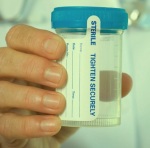 By: Dean Viskovich
By: Dean Viskovich
COVID is front and center in all aspects of everyday life and has shined light in the strangest of places that were usually in the dark. In healthcare the laboratory space has always taken a backseat to other sectors in terms of recognition and value. The current climate in the lab space has shifted and it is not an illusion, labs are front and center.
COVID has taken its toll on areas of the economy and investors are certainly one of the first to become aware of this situation. Clinical laboratories are currently an attractive acquisition target and the reasons are numerous, sectors like retail, entertainment and travel are performing poorly and investors are shifting their investment dollars into healthcare and technology. Investors are looking for growth and profitability and are finding it in healthcare. Mergers and Acquisitions (M&A) is nothing new in the lab industry, but now careful consideration is required when it comes to deciding the appropriate time to sell your lab.



 By:
By: 
 By:
By: 
 By:
By:  By:
By:  By:
By: 


